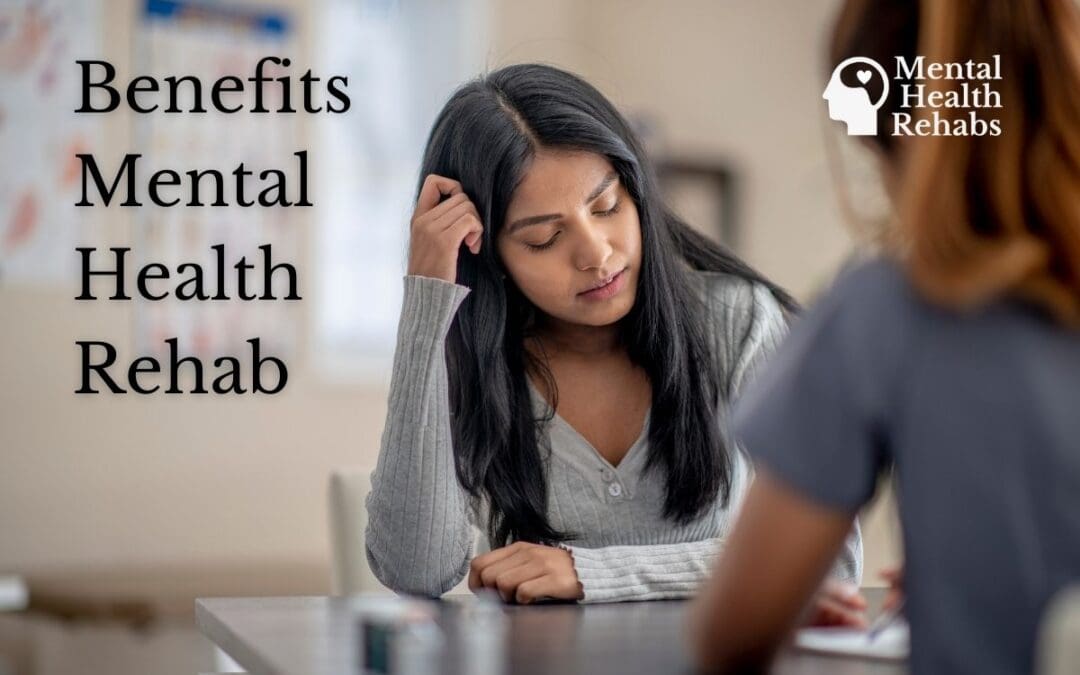While we often associate “rehab” with substance abuse, many mental health rehabilitation programs exist. Whether it is substance abuse or mental illness, these programs have the same goal: to help you overcome your mental health challenges.
Mental health, psychiatric, or psychosocial rehabilitation is a mental health treatment option that provides a holistic approach to mental illness, considering the patient’s emotional, cognitive, and social needs.
This comprehensive approach aims to improve the lives of people with mental health disorders by arming them with effective life skills and helping them regain control of their recovery journey.
The 7 Benefits of Attending Mental Health Rehab
Let’s explore the seven main benefits of mental health rehab and how to determine if you would benefit from it.
1. Access to a Supportive Environment
Your support system plays a crucial role in your recovery from mental illness. Being surrounded by supportive professionals fosters a safe, nurturing, and structured space for healing and growth. The empathetic, non-judgemental, evidence-based support and interactions with peers who understand your struggles guide your recovery process.
2. A Holistic Approach to Mental Health
Mental health professionals understand that we are all complex. The various elements and phases of our lives create a web of factors influencing our vulnerability to mental illness and our level of preparedness to manage it.
The holistic approach considers your situation’s physical, emotional, social, and spiritual elements and how they each play a role in developing and recovering from mental illness.
Mental health rehabs provide whole-patient support by incorporating interventions like therapy, medication-assisted treatment (MAT), lifestyle adjustments, stress reduction techniques, nutritional support, and many more.
3. Unique Learning Opportunities
For many, a mental health rehab will be the first structured environment where their mental health is examined from multiple points of view. Professionals and peers will identify the underlying elements contributing to mental illness while providing help through coping skills, relapse prevention, social skills, and psychotherapy. This exposure to new terminology and mental health management skills provides an invaluable learning experience.
4. Build a Strong Support System
A support system is a group of loved ones, peers, and professionals who provide ongoing assistance and emotional support during recovery. Mental health rehabs strengthen your support system by putting you in direct contact with mental health professionals and peers in a structured and supportive environment.
Participating in therapy sessions, support groups, and group activities helps you establish relationships with experts and people facing similar struggles. Over time, you may trust them more, fostering a sense of belonging and community essential for recovery.
5. Develop Long-Term Healthy Habits
Mental health rehab professionals and peers expose you to healthy habits like stress management, self-care practices, medication management, social skills, routine, structure, and relapse prevention techniques. Since mental health is complex and multi-faceted, developing a combination of healthy habits gives you an effective framework or toolset for long-term mental health management.
6. Learn Coping Skills
Coping skills fall in the “long-term healthy habit” category but deserve a point of their own. Coping skills are strategies, techniques, and behaviors you can use to manage mental health challenges and triggers during everyday life.
Mental health rehab professionals emphasize the importance of learning coping skills like breathing exercises, mindfulness, meditation and other relaxation techniques, and journaling.
Learning these techniques and identifying the one that works best for your needs is essential to managing mental illness symptoms long-term.
7. Improved Mental Health And Overall Wellness
The combination of a holistic approach that considers all factors of your mental health challenges with structured environments, peer support, therapeutic interventions, and medication management is very effective for overall wellness.
It helps you recognize that your mental health struggles are multifactorial and, as a result, require a combination of multiple solutions. Understanding the multifaceted nature of mental illness and knowing how to target each element promotes a sense of overall wellness.
Am I a Good Fit for Mental Health Rehab?
Every mental illness case is different, so it’s hard to tell whether someone needs mental health rehab without diving into their unique circumstances and needs.
Still, there are a few patterns you should look out for when determining whether you’d benefit from mental health rehab. Consider the following:
- Are your symptoms affecting your ability to function?
- Do you have a history of recurrent mental health challenges?
- Have you experienced suicidal ideation or self-harm thoughts recently?
- Do you experience co-occurring disorders, like substance abuse?
- Have you tried therapy and been unsuccessful?
The more questions you answer with a “Yes,” the more you’ll likely benefit from the structured environment mental health rehabs provide.
When to Get Mental Health Treatment
Ultimately, you should get psychiatric treatment when you feel like your mental health challenges are disrupting your life and you don’t know how to manage them.
Taking that first step toward mental health treatment can be intimidating and overwhelming, but it’s essential for your long-term well-being. If you don’t know where to start, try exploring online mental health services platforms, your insurance provider’s network, or asking your loved ones about mental health services they’ve used in the past.
What’s important is that you integrate yourself into a supportive network of professional and trusted people who can help you develop strategies for overcoming your challenges.

